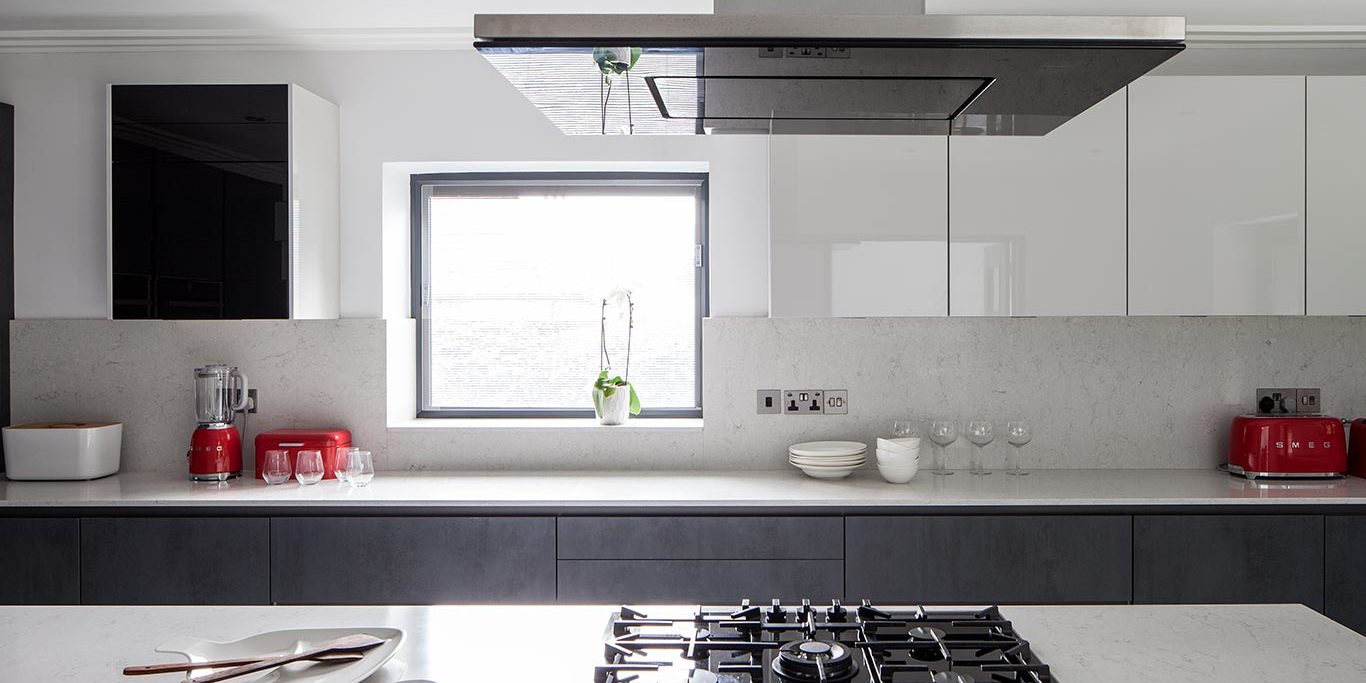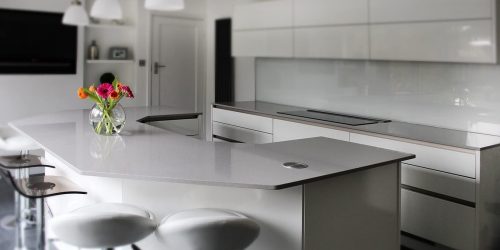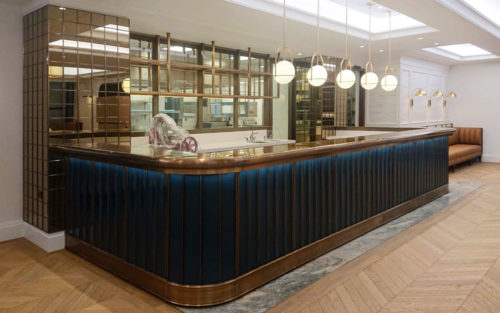There is some confusion when it comes to quartz worktops. The word “quartz” refers to one of the most abundant minerals on the planet, but strictly speaking, a manmade quartz worktop is not pure quartz. The only stone which fits that description is quartzite, which is pure natural quartz. A manufactured – or manmade – quartz worktop is mostly quartz, but not entirely.
When we talk about quartz worktops at Marble & Granite, we are referring to a manmade stone that is mostly quartz but contains other materials. These are resins (polyester and styrene), pigments, and other additives, which are only a tiny percentage. The percentage of quartz weight or volume can be little as 74.2% up to 93%, the latter being the content of our quartz worktops.
The quartz particles in manmade quartz slabs can vary in size from about ½ a millimeter up to as much as 5 millimeters, and the polyester resins bind them together. In some slabs, the polyester resins are mixed evenly throughout the slab, and in others, they can show visible areas of resins, depending on the design. This is also true of the pigments: some evenly spread through the slab giving an even colouring to it, while others mixed in randomly to produce ribbons or accents of different colours to imitate as closely as possible a natural stone.
Manmade quartz slabs are mixed by blending all the ingredients and then pouring them into moulds. These are then subject to different processes depending on the manufacturer. Still, they will involve a combination of heat, vibration, compaction, and a vacuum, which will convert the slurry into a hard slab.
Natural quartz is one of the hardest stones known to man; therefore, manmade or engineered quartz stone worktops are incredibly durable, stain-resistant, and resistant to acids. The addition of the polyester resins means that the finished product is non-porous and therefore, it does not need sealing as do the natural stones such as granite or marble. Spills such as red wine, coffee, lemon juice, vinegar, cooking oil, so on will not affect it, although they should be wiped up within 24 hours.
Another advantage of engineered quartz worktops is that, since they are non-porous, they do not permit any bacteria or mold growth, and of course, they are perfectly harmless when in contact with food. However, even though they are so hardwearing, and you would probably do more damage to your knife than the worktop surface, you should still never chop foods directly on to them, but always use a chopping board.
We at marble and granite suggest not putting hot pans directly on to quartz worktops from the cooker or the oven because of the resin content. Electric frying pans and slow cookers can also cause the surface to scorch or even crack. Always use a trivet.
Engineered quartz is virtually maintenance-free and can be used for worktops, vanities, bath surrounds, so on, and all they need is a wipe with a damp cloth and possibly a little washing-up liquid. It would help if you didn’t use steel wool, a putty knife, or any other sharp objects to clean quartz surfaces as these repetitively may dull polished surfaces.
It would help if you also took care not to drag heavy pots and pans such as cast-iron pans across the surface of the worktop and be very careful not to drop heavy objects on to it because this could result in damage. Neither should you stand or kneel on the surface as any heavyweight or pressure, especially in areas such as around a sink or hob, can cause breakage. It is true for most worktops.
Honed finishes are also more susceptible to spills from vinegar, lemon juice, red wine, coffee, so on, and these should be wiped up immediately.
If you are looking for quartz worktops in Uxbridge, ours are available in a choice of beautiful colours to grace every kitchen. They can come with either a polished or honed finish according to personal preference. We based on the Birchwood Industrial Estate on the Great North Road in Hatfield, so we are not far away. Come over and take a look at the range of quartz worktops that we have in stock.




